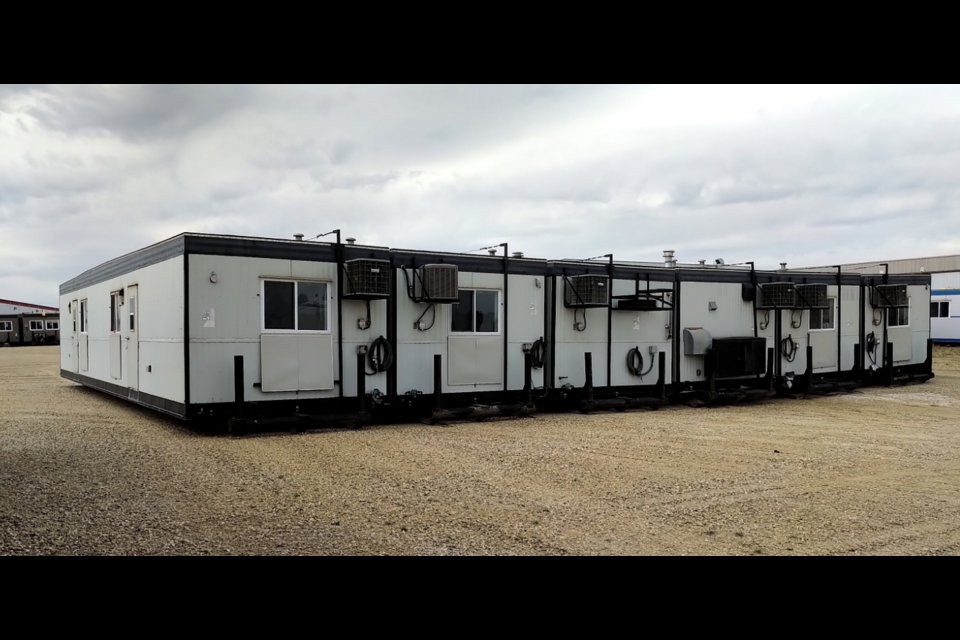LAC LA BICHE - After years of consultations, unveiling a need to build a site to support the homeless population in Lac La Biche, a proposed transitional housing project is making headway.
The transitional housing project, which includes wrap-around mental health and social services for vulnerable populations, will be constructed on a roughly eight-acre property near Alexander Hamilton Park. On Sept. 6, Lac La Biche County council selected the municipal-owned location near 90 Street and 101 Avenue for the project, after several public and private deliberations, in an attempt to not only select a location to support the services, but one that limites the impact on surrounding communities.
“A lot of work has been done to this point… the need has been identified,” said County Mayor Paul Reutov. “We need something before winter and time is of the essence.”
The five-to-four decision was reached by County council after four potential properties in town were recommended by the Transitional Housing Task Force. The group, which was established in 2017, is made up of over a dozen community partners, County officials and stakeholders.
The facility, which is hoped to be operational to meet the need of vulnerable populations this winter, will include six already completed retrofitted trailers to support the wrap-around services. The site will include a space to monitor intoxicated individuals, spaces with mat sleeping arrangements, and three rooms with beds for individuals waiting to get into detoxification and rehabilitation facilities or individuals who may be returning from one.
Additionally, there will be common areas for socializing, meals, staff offices, a laundry facility, showers, washrooms and program rooms.
The purchased units came at a cost of roughly $300,000, supplied by the County's Transitional Wraparound Services Centre Reserve and federal grant funding.
Financial site concerns
With the aim of having the site operational in the coming months, the selected site will require thousands of dollars to make the wetland area surrounding the Alexander Hamilton Trout Pond feasible, said County Chief Administrative Officer (CAO) of Recreation and Community Services Darrell Lessmeister.
According to a County document and task force recommendation, the site “is not a feasible option. It requires a significant amount of work, including road building and bringing services to the site, to make it usable.” In addition, “This site would also mean the disruption or removal of the new Rotary sponsored Disc Golf Course,” according to the document.
The financial cost to fill the wetland area connected to Lac La Biche Lake is a challenge that has become a concern for some councillors.
“For myself, I’m not in favour of the site. The comment was made that we have lots to fill” in the “wetland, its rigours, rigours costs and time expended,” said Coun. Lorin Tkachuk.
The location will need to undergo site preparation, along with road maintenance, installing electrical and gas accesses, and water and sewer. According to council documents, the utility and road services alone are estimated to cost $280,000. Other costs will need to be assessed, said Lessmeister.
Other locations
The task force proposed three other sites in the hamlet of Lac La Biche which include a site south of A&W on 102 Street and 99 Avenue, and Lac La Biche County’s old fire hall, located along 101 Avenue and 102 Street.
Additionally, the task force also says the original site it had recommended months ago located near Britton’s Your Independent Grocer along 99 Avenue and 105 Street, “is actually the best” option, said Anita Polturak, manager of Family and Community Support Services (FCSS) and task force partner.
Polturak says the task force considered additional locations that would allow for recreational programming, a reasonable distance that is walkable to health centres, food access and community services, along with privacy for program users and clients. Creating a space for vulnerable people to be safe and accommodated is vital for the success of the project, she said.
“One concern at the Out of The Elements [Shelter Society] was that people who used that program did not feel they could do anything outside of the building because they thought they would be scrutinized for anything they did,” explains Polturak.
MNA healing camp
A second program in the Bonesville subdivision is also being proposed in the series of vulnerable support projects. The location, five kilometres south of the hamlet of Lac La Biche, has been supporting a temporary site with six shed spaces for up to 24 people, while the Transitional Housing Project was being established.
The site was operated by the Métis Nation of Alberta (MNA) Region 1 with the support of the County. It is expected to transition into a separate healing centre in the future.
Moving forward, County officials will begin assessing the approved site near Alexander Hamilton Park in order to have the retrofitted trailers operational in the next three months, said Lessemeister. The operations of the site are expected to cost upwards of $600,000 annually, which will be funded through grants and redirecting County dollars already being used to support the Out of the Elements Shelter Society, he added.
“We would do what we're doing already today, which is providing emergency shelter services and moving Out of the Elements to this new location.”
Additionally, Polturak says resources to support the program will be made available through Alberta Health Services (AHS), which will provide mental health and addiction services, alongside other grant funding, and as opportunities become available through other groups.
“We have already supported Out of the Elements in applying for operational funding through the Rural Development Network (RDN), which is federal funding, and as those granting opportunities come up, that’s the process we would use in order to increase services,” said Polturak
Council will return in the coming weeks to discuss the details.
“We’ve got a few months until it starts to get cold, so we need to get on this pretty quickly… We have a site, we have the units coming in, I think we’re going to need to expedite the process,” said Tkachuk.



